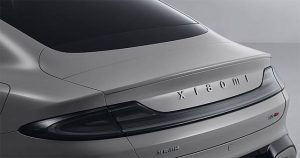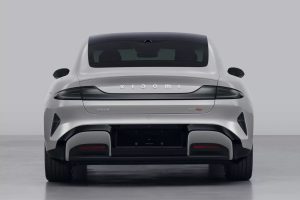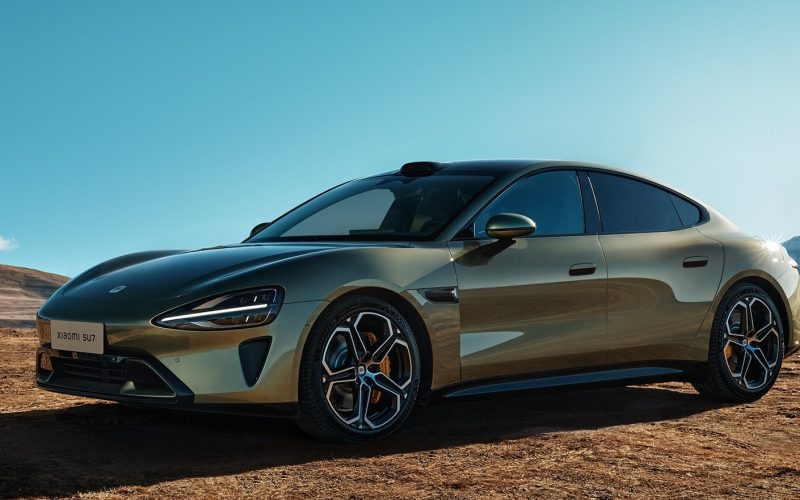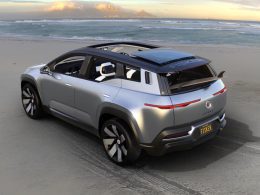What You Need to Know About Xiaomi’s Electric Car Debut
Introduction
Hi, I’m Fred, a seasoned blog writer and a tech enthusiast. I’m here to tell you everything you need to know about Xiaomi’s electric car debut, and what it means for the company and the industry. Xiaomi, the Chinese smartphone giant, has taken the wraps off its first electric car, the SU7, at the inaugural Stride launch event in Beijing on Thursday. The sedan, dubbed the SU7, is a highly anticipated model that is expected to make the most of its shared operating system with the company’s popular phones. Xiaomi has announced that it plans to launch its first electric car in the first half of 2024, and then a new car in each of the following three years. It’s aiming for total sales of 900,000 electric cars in those three years. In this article, I will give you a concise and informative summary of Xiaomi’s electric car debut, and what it means for the company and the industry.

Why Xiaomi Entered the Electric Car Market
Xiaomi is best known for its array of phones and other gadgets, but it has also been investing in various sectors, such as artificial intelligence, cloud computing, and smart home devices. The company has been eyeing the electric car market for a while, as it sees it as a strategic opportunity to expand its ecosystem of products and services, and to compete with other tech giants, such as Apple, Google, and Huawei, who are also rumored to be developing their own electric cars. Xiaomi’s founder and CEO, Lei Jun, said that the company decided to enter the electric car market after conducting extensive research and analysis, and that it was a natural extension of its mission to make quality technology accessible to everyone.

What are the Features and Specs of the Xiaomi SU7
The Xiaomi SU7 is an electric sedan that has a sleek and futuristic design, with a fastback roofline, connected taillights, and snazzy wheels. The car has two powertrain options: a rear-wheel drive setup with a 295 hp electric motor and an all-wheel drive version with a maximum combined power output of 664 hp. The car also has a lidar system installed behind the front windshield, which is expected to provide driver assistance and autonomy features. The car’s in-car system is powered by Xiaomi’s HyperOS, an in-house developed operating system that can power both smartphones and cars. The car also has a camera on the B pillar, which suggests that face recognition unlocking functionality may be part of the package. The car will be available in three trim levels: SU7, SU7 Pro, and SU7 Max, as well as a Founders Edition subvariant. The table below summarizes the key features and specs of the Xiaomi SU7.
| Feature | SU7 | SU7 Pro | SU7 Max |
|---|---|---|---|
| Powertrain | RWD | AWD | AWD |
| Power Output | 295 hp | 664 hp | 664 hp |
| Top Speed | 210 km/h | 265 km/h | 265 km/h |
| Battery Type | LFP | NMC | NMC |
| Battery Supplier | BYD | CATL | CATL |
| Lidar System | No | Yes | Yes |
| HyperOS | Yes | Yes | Yes |
| Face Recognition | Yes | Yes | Yes |
| Wheel Size | 19″ | 20″ | 20″ |
How Does the Xiaomi SU7 Compare to Other Electric Cars
The Xiaomi SU7 is a bold and ambitious move by the company to enter the electric car market, which is already crowded with established players, such as Tesla, Nio, and BYD, as well as newcomers, such as Lucid, Rivian, and Polestar. The Xiaomi SU7 seems to be closest to the Tesla Model S in terms of its size, shape, and performance, but it also has some unique features, such as the lidar system, the HyperOS, and the face recognition. The table below compares the Xiaomi SU7 with some of the other popular electric cars in the market.
| Car | Power Output | Top Speed | Range | Price |
|---|---|---|---|---|
| Xiaomi SU7 | 295-664 hp | 210-265 km/h | N/A | N/A |
| Tesla Model S | 670-1020 hp | 250-320 km/h | 520-837 km | $79,990-$149,990 |
| Nio ET7 | 644 hp | 240 km/h | 500-700 km | $69,185-$81,230 |
| Lucid Air | 480-1080 hp | 270-320 km/h | 653-837 km | $77,400-$169,000 |
| Polestar 2 | 408 hp | 205 km/h | 375-540 km | $59,900-$69,900 |
What are the Challenges and Opportunities for Xiaomi
Xiaomi’s electric car debut is a bold and ambitious move, but it also comes with many challenges and uncertainties. Some of the challenges that Xiaomi may face are:
- Regulatory hurdles: Xiaomi will have to comply with various regulations and standards in different markets, such as safety, emissions, and data privacy. Xiaomi may also face political and trade barriers, especially in markets where it has faced scrutiny or bans, such as the US and India.
- Manufacturing capacity: Xiaomi will not be manufacturing the car itself, but will rely on BAIC, a state-owned Chinese car manufacturer, to produce the car on contract. This may limit Xiaomi’s control over the quality, cost, and supply of the car, and may also expose it to the risks and uncertainties of BAIC’s operations and performance.
- Customer loyalty: Xiaomi will have to convince its existing and potential customers that it can deliver a reliable, safe, and innovative electric car, and that it can provide adequate after-sales service and support. Xiaomi will also have to compete with other established and emerging brands, who may have more experience, reputation, and resources in the electric car market.

On the other hand, Xiaomi also has many opportunities and advantages that may help it succeed in the electric car market. Some of the opportunities that Xiaomi may have are:
- Brand recognition: Xiaomi is one of the world’s largest and most popular smartphone brands, with a loyal and growing fan base, especially in emerging markets, such as China, India, and Southeast Asia. Xiaomi’s brand recognition and reputation may help it attract and retain customers who are familiar with and trust its products and services.
- Ecosystem integration: Xiaomi has a diverse and comprehensive ecosystem of products and services, ranging from smartphones, laptops, TVs, smart home devices, cloud computing, artificial intelligence, and more. Xiaomi may leverage its ecosystem to integrate its electric car with its other products and services, and to offer a seamless and convenient user experience across different platforms and scenarios.
- Innovation and affordability: Xiaomi is known for its innovation and affordability, as it offers high-quality products and services at competitive prices, and constantly introduces new features and technologies to its customers. Xiaomi may apply the same strategy to its electric car, and offer a unique and attractive value proposition to its customers, who may be looking for a smart, stylish, and affordable electric car.
Conclusion
Xiaomi’s electric car debut is a significant and exciting event for the company and the industry, as it marks the entry of one of the world’s largest and most innovative tech companies into the electric car market. The Xiaomi SU7 is a sleek and futuristic electric sedan that has impressive features and specs, and that may challenge and compete with other electric cars in the market. However, Xiaomi also faces many challenges and uncertainties, as it will have to overcome various regulatory, manufacturing, and customer hurdles, and prove itself as a reliable and reputable electric car maker. Xiaomi also has many opportunities and advantages, as it can leverage its brand recognition, ecosystem integration, and innovation and affordability, to offer a unique and attractive electric car to its customers. Xiaomi’s electric car debut is a bold and ambitious move, but it also a risky and uncertain one. Only time will tell if Xiaomi can succeed in the electric car market, and what it means for the company and the industry.












